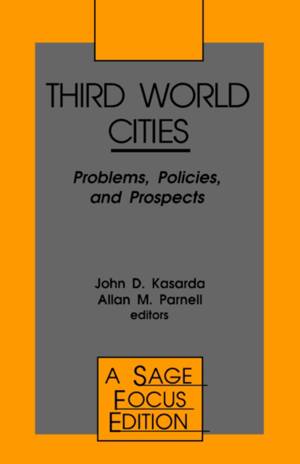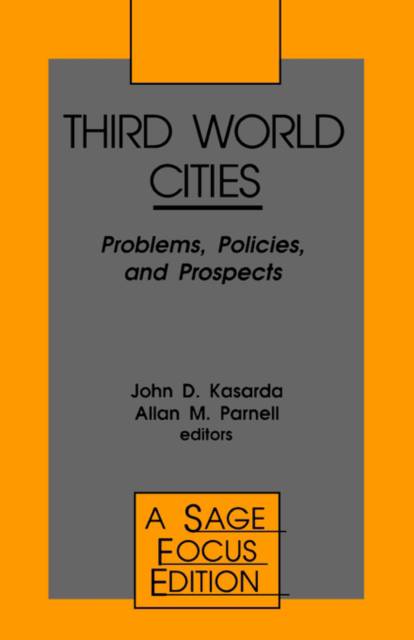
Je cadeautjes zeker op tijd in huis hebben voor de feestdagen? Kom langs in onze winkels en vind het perfecte geschenk!
- Afhalen na 1 uur in een winkel met voorraad
- Gratis thuislevering in België vanaf € 30
- Ruim aanbod met 7 miljoen producten
Je cadeautjes zeker op tijd in huis hebben voor de feestdagen? Kom langs in onze winkels en vind het perfecte geschenk!
- Afhalen na 1 uur in een winkel met voorraad
- Gratis thuislevering in België vanaf € 30
- Ruim aanbod met 7 miljoen producten
Zoeken
€ 238,45
+ 476 punten
Omschrijving
It took New York City (the world′s largest metropolis in 1950) nearly a century and a half to expand by eight million residents. Mexico City and Sao Paulo will match this growth in less than fifteen years. Asia′s mega-cities, too, are exploding in number and size. This kind of unprecedented growth is being echoed in the urban centers of developing nations around the globe. The essays in this volume address the wide array of problematic issues--as well as the opportunities and advantages--that are the natural outgrowth of such rapid urbanization. Third World Cities examines three sets of vital issues. Drawing on the experience and evidence of the past two decades, the book′s initial chapters assess theoretical frameworks upon which urban and migration policies are based. The authors of the middle section press for fresh approaches to the increasing demands placed on institutions and individuals in the largest cities of the developing world. The final chapters examine the complex demographic, social, and economic processes of urban growth. Students, professionals, and policymakers in development and urban studies, public administration, sociology, political science and comparative politics, geography, and ethnic studies will find Third World Cities to be a refreshing and innovative look at this growing concern. "Third World Cities offers a range of new ideas on the demographic, social spatial, and environmental changes that are `occurring so quickly that up-to-date evidence is elusive′ . . . Third World Cities is both thought-provoking and highly readable." -The Economic Times
Specificaties
Betrokkenen
- Auteur(s):
- Uitgeverij:
Inhoud
- Aantal bladzijden:
- 328
- Taal:
- Engels
- Reeks:
- Reeksnummer:
- nr. 148
Eigenschappen
- Productcode (EAN):
- 9780803944855
- Verschijningsdatum:
- 10/11/1992
- Uitvoering:
- Paperback
- Formaat:
- Trade paperback (VS)
- Afmetingen:
- 142 mm x 217 mm
- Gewicht:
- 439 g

Alleen bij Standaard Boekhandel
+ 476 punten op je klantenkaart van Standaard Boekhandel
Beoordelingen
We publiceren alleen reviews die voldoen aan de voorwaarden voor reviews. Bekijk onze voorwaarden voor reviews.









